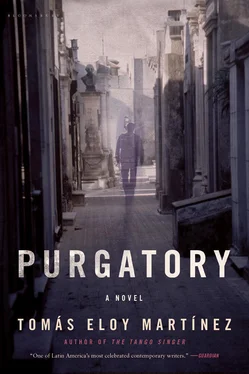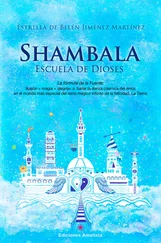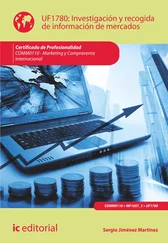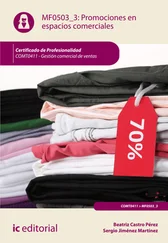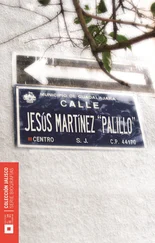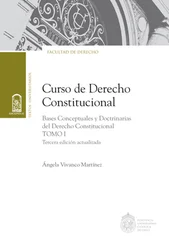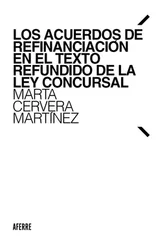Two months after seizing power, the president came to her parents’ house for dinner. He was accompanied by his wife, her stiff, swollen legs covered by a long skirt, and by the chaplain of the Military Vicariate. Since Emilia was his eldest daughter and had just come back from her honeymoon, Dr Dupuy condescended to invite her on the condition that she and her husband refrain from making any political comments. This peremptory command unsettled Simón who did not want to go. Outside the family house was a confusion of cars and soldiers in service uniforms.
It was a warm night in mid-May and the president, invariably described by the newspapers as ascetic, seemed exultant, almost triumphant. He greeted Emilia with a dispassionate kiss on the cheek, offered his hand for Simón to shake without looking at him, all the while relating the successes of the day. When he spoke, he enunciated each syllable as though mistrustful of his listeners’ intelligence. From time to time, he gave Dupuy a sidelong glance and the doctor nodded his approval. Except for photos from the 1930s, Emilia had never seen a man wear his hair so plastered down with hair cream. The monsignor flirted with Simón. As he expounded on the meaning of the symbols on the golden chasuble he was to wear for the first time for the Corpus Christi procession, he toyed with the crucifix pinned to his chest. His shrill, bird-like voice was remarkable and he fell silent only when the president began to explain how, in less than two months, the government had managed to reduce inflation by more than 20 per cent.
‘The National Reorganisation policies are beginning to take effect,’ he said with the punctiliousness of a teacher. ‘We have managed to keep salaries under control and the union protests are over—’
‘Not before time,’ the president’s wife interrupted. ‘Troublemakers and drunks, the lot of them. The minute they got their wages, they’d spent their last centavo in the bars. Well, now they’ll learn what it means to behave decently.’
‘Praised be the Lord,’ said the chaplain.
The champagne moved the conversation on to subjects more likely to appeal to the ladies. All of them, including Emilia, used the same perfume, Madame Rochas, as though it were a sign of distinction. Chela and her mother discussed whether Lancôme creams were better than Revlon. The president’s wife settled the matter.
‘I’ve always favoured Lancôme,’ she said, ‘from the very first time I used it. I wouldn’t use anything else now.’
‘Why do any of you need to use creams at all?’ the chaplain interjected. ‘You all have such wonderful complexions.’
Ethel, the mother, smiled appreciatively. ‘It’s quite clear, Monsignor, that you are interested only in spiritual beauty. We women are forced to make do with what scant beauty God has blessed us with.’
‘I have friends who went to Europe who told me that they have fabulous creams over there that we’ve never even heard of,’ said Chela.
‘They’ll get here. Everything in its own time, niña ,’ said the president. ‘Argentina used to be cut off from the world but we’re going to open the doors to imports so that our industries learn to compete.’
‘I’d really like to visit Europe,’ said Chela.
‘Who wouldn’t?’ the president’s wife sighed. ‘My dream is to meet the Holy Father; every day, he grows more like Pius XII. He has such a gentle, such an aristocratic manner about him, and such strength of character.’
The monsignor brought his hands together and raised his eyes to heaven.
‘The Lord never fails those who love Him. Your dream will come true sooner than you think; plans for just such a trip are already well advanced.’
‘Every night, I pray to God to keep the Holy Father healthy. Once we’ve dealt with the extremists, the first thing we’ll do is go to Rome to give thanks. But just now we can’t go anywhere. We have to look after our home.’
Dinner was served and the monsignor, seated at the head of the table, said grace. He prayed for a swift victory for the nation’s armies and, his beatific smile almost caressing the president, intoned: ‘Through me, and through the arm of our comandante Our Lord Jesus Christ, bless the process of national purification which makes it possible for us to eat in peace.’
‘Amen,’ said the president. He lifted his untouched glass of champagne. Everyone else did likewise. ‘To peace.’
For a while, no one spoke. The president’s wife praised the asparagus soufflé and the spider crab which Dr Dupuy had had shipped all the way from Tierra del Fuego. The chaplain accepted a second helping and, eyes half closed, savoured the food.
‘Congratulations, my dear doctor. This is delicious.’
Dupuy accepted the compliment with a chilly smile and turned to the president.
‘Did you have a good day, señor?’
He made a small gesture which the waiters immediately understood. They were to serve another round of Dom Perignon. Though in private, Dupuy addressed the president informally, he was careful to observe protocol when others were present. Behind the president’s display of strength, he knew, the man was sensitive and insecure.
‘I can’t complain. I spent the morning addressing the World Advertising Congress and I’ve rarely heard such an ovation. The business community is thrilled by what’s happening here. They say that in a couple of months we’ve managed to get the subversives on the ropes. We’ve flushed the rats from their nests. We inherited a country in chaos, now we live in an orderly society.’
Ethel felt compelled to intervene.
‘Every night I prayed to God that you and your men would take power quickly. The Argentinian people were horrified to see the country in the clutches of that brainless burlesque dancer 6. We were afraid that by the time you came to power, the country would be in ruins. I’ve been terribly impressed by how quickly you’ve restored order. Even Borges — a man of few words — said how proud he is of the army that saved the country from Communism. I heard him on the radio only a couple of hours ago.’
‘Ah, yes. I had lunch with Borges and a number of the intelligentsia. My advisers invited them so we could discuss cultural matters. Only one of them proved intractable — though it was the one person we least expected — a priest, a certain Father Leonardo Castellani.’
‘I thought he was dead,’ said Dupuy. ‘He must be at least eighty.’
‘Seventy-seven I was told. I see you know the man.’
‘Not really. I’ve read some of his writings. He translated a section of St Thomas Aquinas’ Summa Theologica and wrote a number of rather good crime novels. He was told that the Jesuits would punish him and indeed he was expelled from the order and sent into reclusion in a monastery in Spain. It was only a few years ago that the Vatican permitted him to say Mass again.’
The president had barely touched his food. He was so thin, the other comandantes called him the Eel. It was a nickname that did not displease him. Even as a young cadet, he had been slippery, cold, inscrutable. Though he had not sought it, he had accepted the highest office in the land for the sake of the military. Even now, at the height of his power, he was still an eel, noted for his secrecy, his cunning, his good luck.
‘I had no idea the priest would prove so turbulent. I shall have to rebuke my advisers for inviting him. From the moment I saw him, he did not strike me as a man of God. He has a glass eye. A frozen, cadaverous eye. Over dessert, he had the gall to suggest that I release a former student of his from prison, someone named Conti. He ranted and raved like a man possessed.’
‘He always was possessed,’ Dupuy offered.
Читать дальше
